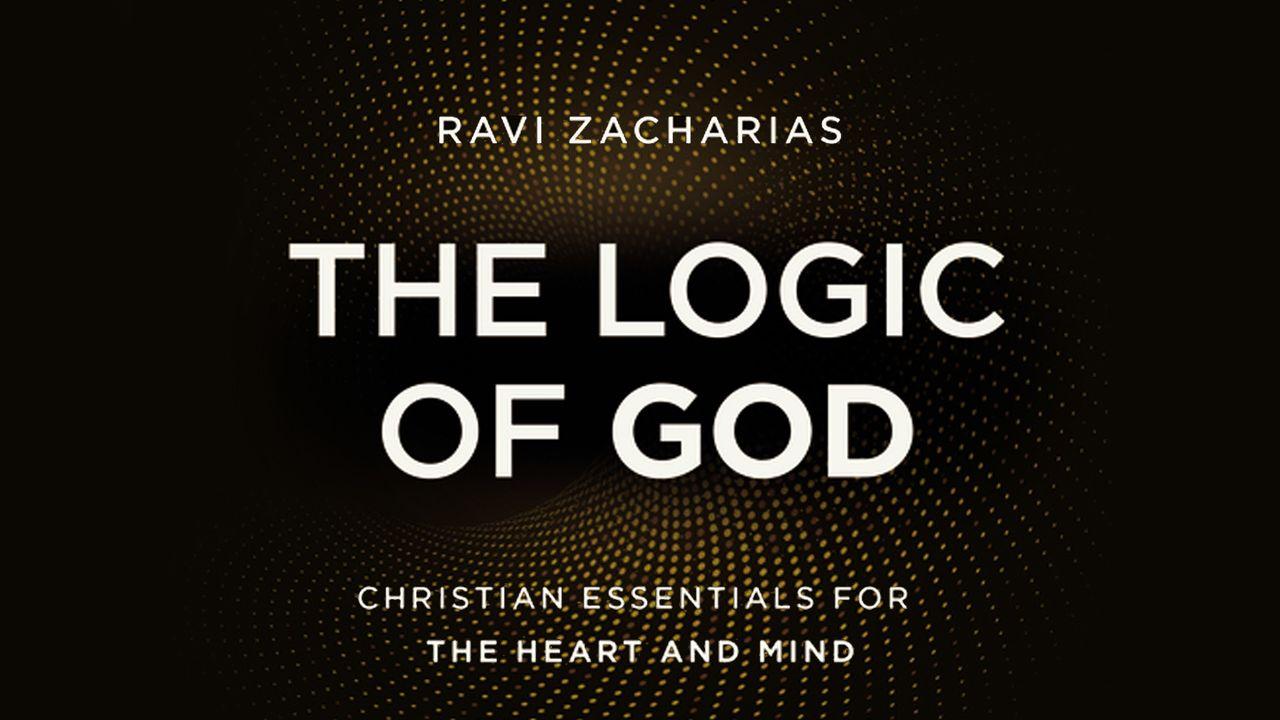5 Days Of Exploring Doubt With The Logic Of GodSample

Losing Sight
Years ago, my family and I were visiting the city of Bedford, England. In the heart of Bedford stands a larger- than- life statue of the famed seventeenth-century author John Bunyan. In fact, so imposing is the size of that sculpture that someone had painted bold, gigantic white footsteps from the edifice all the way to the public toilets. The message implied, sarcastically or otherwise, that Bunyan still lives.
Any reader of literature knows that though Bunyan has long been dead, his brilliant work, The Pilgrim’s Progress, does indeed live on. That book has been translated into more languages than most other books in history, with the exception of the Bible.
So my family and I wandered through the museum built to his memory, where there was exhibited a copy of the book in every language in which it had been printed. We were quite impressed by the people of various nationalities engrossed in the display, walking from room to room, studying the exhibits.
As I was leaving, I commented to the woman at the front desk, “Isn’t it amazing that a simple little book from the hands of a mender of pots and pans has won such worldwide acclaim?”
She paused and said, “I suppose that is true, but I must confess that I haven’t read it.”
If there hadn’t been a hard floor beneath me, I would have voluntarily fainted. Unable to help myself, I asked her, “Why not?”
“I found it too difficult, I suppose,” she replied dispassionately.
If shock were to be measured along a scale, at this point I was nearly off the chart. What does one say to the person who sells tickets to a museum, the existence of which is owed to one book, while she herself has left the work unread? I recommended that for the sake of sheer curiosity, if not propriety, she might at least try the children’s version, so she could get a mild taste of what the interest was all about.
Bunyan’s classic tale is a shrewd and an insightful allegory of the journey of life. Christian, the lead character who represents each of us as pilgrims, struggles with a heavy burden. He encounters the testing of Vanity Fair, the Slough of Despond, and so on. It is only when Christian reaches the foot of the cross at the top of the hill that his burden falls off him.
But the journey doesn’t end there. Bunyan writes,
Then he stood still for a while to look with wonder and amazement; for it was so surprising to him that the sight of the Cross should accomplish the release of his burden. Therefore he looked again and again, even until inward springs of water flowed down his cheeks. Now as he stood looking and weeping, behold three Shining Ones approached and saluted him with the benediction, “Let peace be upon you.”
So the first Shining One said to him, “Your sins have been forgiven.” The second stripped Christian of his rags and clothed him with a complete change of garment. The third set a mark upon his forehead and gave him a scroll with a seal on it, which he directed should be looked at as he ran and handed in upon arrival at the gate of the Celestial City.
The first angel meets his spiritual need, the second addresses his physical needs, and the third engages his intellectual needs with a map to guide and instruct him along the journey. The Christian’s walk involves all three areas of life: the spiritual, the practical, and the intellectual. These are not mutually exclusive.
Yet, like the employee in the Bedford museum who had not read the work responsible for the museum’s very existence, we may disregard the very Author of our lives. This is true not only of skeptics but of confessing believers and followers of Christ as well. How easy it is to lose sight and disregard the great inheritance promised through the gospel: God’s own Spirit within us.
So, may we hold fast daily to His Word and His Spirit’s indelible mark upon us at the foot of the cross as His dearly loved children! God’s Word and His indwelling presence are given to us to inform, enrich, teach, correct, and guide us to the “Celestial City.” If we lose sight of these realities, we have lost the light that guides us on the journey, whether it is through the valley or around a hope-filled bend.
But oh, too, rejoice in the tenderness of God’s gifts to us! He is complete, and thus are we, in what He gives to you and me: He forgives us. He robes us. And He guides us home—with the seal of His very Spirit upon us, both now and when we arrive to meet Him face-to-face.
Scripture
About this Plan

We all have doubts that challenge our faith. We wonder whether the Bible still matters, or whether God is truly as loving and personal as we hope. In The Logic of God, apologist Ravi Zacharias explains how and why Christianity, the Bible, and God are still relevant, vital, and life-changing for us today.
More
Related plans

No Better News

The Bible in Six Acts: The Jesus Bible Study Series

Father’s Love: 30 Days of Discovering God as Father

Why Read the Bible? 30 Reasons Jesus Did

Hustle and Pray: Work Hard. Stay Surrendered. Let God Lead.

God Selected You

Two-Year Chronological Bible Reading Plan (First Year-February)

God's Child

Sukkah: Living in Joy
